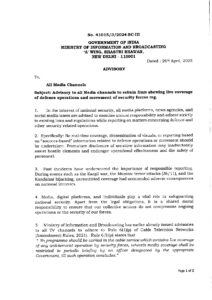Tamil Nadu to encourage traditional paddy varieties that could help fight against diabetes
Chennai, Feb 20 (PTI) The Tamil Nadu government on Monday announced that it would distribute seeds to encourage farmers to cultivate traditional paddy varieties that could help fight diabetes — drawing lessons from the “dietary practices of ancient Tamils”.
While presenting the farm budget, Agriculture Minister MRK Panneerselvam said that cultivation of traditional paddy varieties with medicinal properties would be actively promoted.
Referring to the wholesome dietary practices of ancient Tamils, he said: “To promote a healthy lifestyle, the cultivation of traditional varieties with medicinal properties, such as Sivan Samba, known for its diabetes controlling attributes, will be actively promoted. In 2024-2025, these specific seed varieties will be distributed to farmers, to cover an area of 1,000 acres.”
Under the ‘Nel Jayaraman Mission’ to conserve traditional paddy varieties, seeds of varieties like Arupadham Kuruvai, Poonkar, Thooyamalli, Seeraga Samba, Mappillai Samba, Sivan Samba and Karuppu Kavuni are being produced in state seed farms and distributed to farmers. During 2023-24, 20,979 farmers benefited from cultivating traditional varieties in an area of 12,400 acres, the minister said. During the financial year 2024-2025, 200 MT of traditional paddy variety seeds will be produced in state seed farms for cultivation in the following year in an area of 10,000 acres in all districts, the minister announced. Rs 50 lakh will be allocated for this plan.
The minister said that Azadirachtin, an active ingredient found in neem-based products, stands out as an excellent pesticide, which can be used without harming the environment. Neem saplings will be distributed for this purpose. “Neem leaves are also used as green leaf manure. To promote the cultivation of neem trees, during 2024-2025, 10 lakh neem tree saplings will be distributed to farmers at no cost for which Rs 2 crore will be earmarked under the agroforestry scheme,” Panneerselvam said. A ‘model organic farm’ will be established in each block of the state with the aim of promoting farming without the use of chemical inputs, he added.
Farmers will be encouraged to take up organic farming, and be given training to familiarise them with the schemes available, certification methodologies, organic input production and marketing of organic produce. For this initiative, Rs 38 lakh will be allocated, Panneerselvam announced.
For 2024-2025, an allocation of Rs 20 crore has been earmarked for the distribution of green manure seeds to cover 2 lakh acres benefitting 2 lakh farmers. To produce vermicompost and to improve soil fertility, 10,000 farmers will be provided two vermicompost beds per farmer (total outlay Rs 6 crore), the minister said. Additionally, Rs 5 crore will be allocated for setting up permanent vermicompost pits, the minister added. Furthermore, he said comprehensive soil health campaigns would be organised across all villages in Tamil Nadu to foster awareness on the importance of balanced fertiliser application and integrated nutrient management.
All such initiatives form part of the 22 components of a new state scheme announced by Panneerselvam in the agriculture budget for 2024-25. The scheme is titled ‘Chief Minister’s Mannuyir Kaathu Mannuyir Kaappom Scheme’ (CMMKMKS) which translates to protecting lives by preserving living organisms present in the soil. The objectives of the scheme are to encourage sustainable practices, develop special ‘climate smart’ villages, ensure soil fertility, reclaim 37,500 acres of alkaline soil and distribute 5 lakh litres of liquid biofertilisers.
CMMKMKS will be implemented from 2024-2025 and Rs 206 crore is the estimated allocation, Panneerselvam announced. Promotion of plant species like Adathoda and Nochi that have natural bio-insecticidal properties and traditional paddy varieties including Sivan Samba that have diabetes-controlling attributes, also fall under the 22 features of the broad-based scheme. Identification, collection and preservation (in state seed farms) of traditional millet varieties, developing new ones and improving existing varieties are also covered under the 22-point plan.






